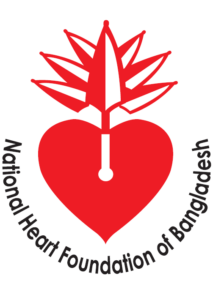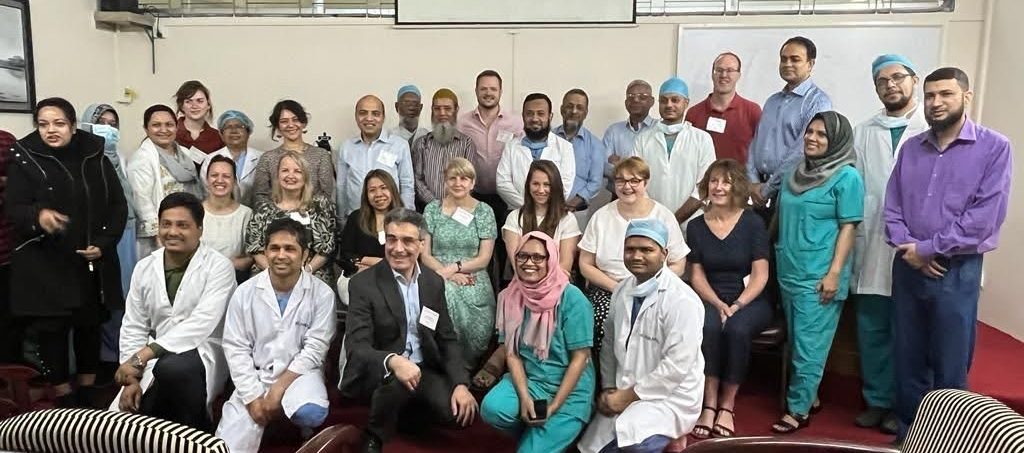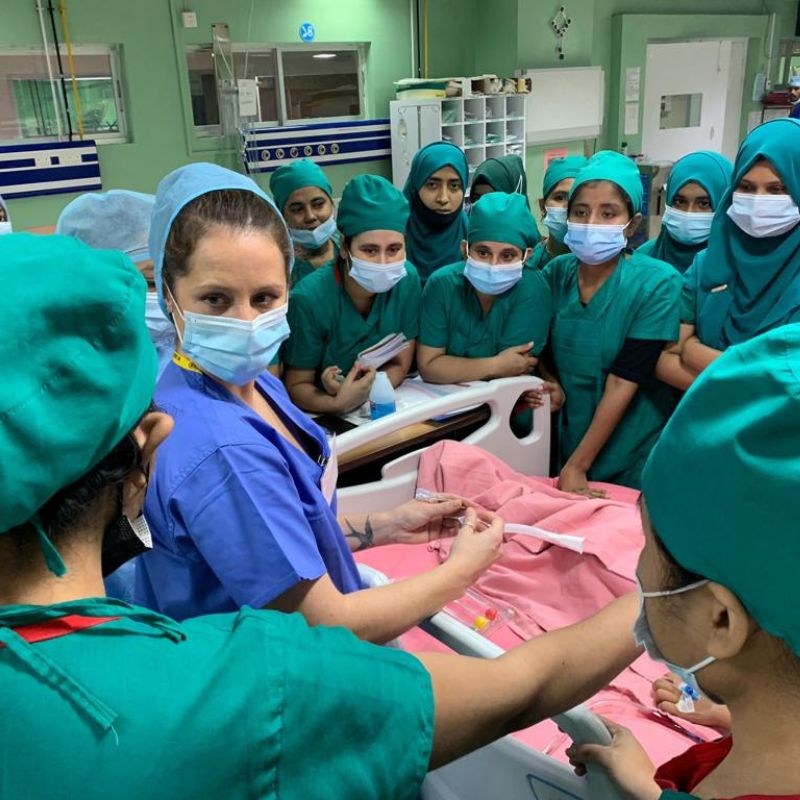December 9, 2022
Reaching Children with Congenital Heart Disease in Bangladesh
 Children’s HeartLink, a global nonprofit organization, is partnering with the National Heart Foundation Hospital and Research Institute to provide support furthering a high-quality, team-based approach to serving children with heart disease and their families. Through Children’s HeartLink, the hospital will be partnered with a medical volunteer team from Leeds Children’s Hospital in the U.K.
Children’s HeartLink, a global nonprofit organization, is partnering with the National Heart Foundation Hospital and Research Institute to provide support furthering a high-quality, team-based approach to serving children with heart disease and their families. Through Children’s HeartLink, the hospital will be partnered with a medical volunteer team from Leeds Children’s Hospital in the U.K.
Heart Care in Bangladesh
National Heart Foundation Hospital and Research Institute (NHF), part of the National Heart Foundation of Bangladesh, is located in Dhaka, the country’s capital. They provide specialized care to approximately 2,000 children on an annual basis. In 2021, the pediatric cardiac unit performed over 700 surgeries.
“With the generosity of longtime Children’s HeartLink supporter Omar Ishrak and his family, we’re able to welcome National Heart Foundation Hospital and Research Institute as our new partner hospital,” said Children’s HeartLink President Jackie Boucher.
The country is one of the most densely populated in the world with a population of over 166 million people. And heart disease is the second cause of infant deaths in Bangladesh. As for the National Heart Foundation Hospital and Research Institute, they are the national referral center for all children with high complexity congenital heart disease. To meet increasing demand, the hospital has two campuses, one focused on women and pediatric cardiac patients, with 480 beds total. “We believe National Heart Foundation Hospital and Research Institute is well positioned to continue to grow their pediatric cardiac care program to become a Children’s HeartLink Center of Excellence. Through a multiyear training and mentoring partnership, we will support the hospital in developing their pediatric cardiac program to treat and improve the lives of more children with congenital heart disease,” Boucher said.
Developing the Pediatric Cardiac Care Program
The Children’s HeartLink partnership will support the NHF team in developing their organizational capacity, multidisciplinary skills, clinical skills and more to better serve children.
“I am a firm believer in Children’s HeartLink’s mission and a strong supporter of their approach,” said Omar Ishrak, former chairman and CEO of Medtronic and funder of Children’s HeartLink’s work in Bangladesh. “I wanted to help bring this impactful program to Bangladesh. Not only is it my country of origin, but it has a number of hospitals with basic pediatric cardiac care capabilities that could benefit greatly from the partnership with Children’s HeartLink.”
As Ishrak told The Business Standard newspaper in Bangladesh, addressing the limited capacity for pediatric heart care in Bangladesh is needed “sooner rather than later, because even if you improve the treatment, there are many waiting at the door and many of these children will die if they don’t get treated.”

In December 2022, Children’s HeartLink held the first training visit between Leed’s Children’s Hospital medical volunteers and National Heart Foundation Hospital and Research Institute in Dhaka, Bangladesh.Through Children’s HeartLink, the hospital team is partnered with a medical volunteer team from Leeds Children’s Hospital, one of the UK’s largest specialist children’s hospitals. Together, the two teams will work to improve care and outcomes for children born with heart disease. In December 2022, the medical volunteer team from Leeds traveled to NHS for one week in an initial assessment and training visit.
“Pediatric cardiac care is a small specialty which looks after children born with congenital heart disease. Children are often the last to get care in low resourced environments. They’re so vulnerable. They’re children who don’t get the care that we would get in western countries,” said Osama Jaber, MD, head of congenital cardiac surgery at Leeds Children’s Hospital, and Children’s HeartLink medical volunteer.“ The Leeds team is looking forward to working with the National Heart Foundation Hospital and Research Institute team to see how we can support them in diagnosing and treating these children earlier for the best possible outcome.”
According to NHF, this partnership provides several benefits to its team, patients and pediatric cardiac patients throughout Bangladesh, including:
- Increased access to care for patients with congenital heart disease
- Quality improvement initiatives to reduce mortality and mobility of congenital heart disease patients
- Improvements to the patient care pathway
- Implementation of standardized OR and PCICU protocols and handover systems
- Reduction of infection rate of postoperative patients
- Facilitation for development of the other pediatric cardiac centers in the country by providing training to caregivers
For pediatric cardiac patients in Bangladesh specifically, the partnership means access to advanced medical care at low cost.

Growing into a Children’s HeartLink Center of Excellence
One of the goals is for the hospital to become a Children’s HeartLink Center of Excellence. Earning the center of excellence status means the hospital provides high-quality, complex care, and can serve as a regional trainer for other pediatric cardiac specialists.
Children’s HeartLink has an aspirational goal to reach one million more children in underserved regions by 2030. The new partnership with the National Heart Foundation Hospital and Research Institute will result in more children born with heart disease receiving the heart care they need and deserve to survive and thrive.
Pictured: During the first training visit in December 2022, health care workers gathered around for hands on training.
originally Published on December 9, 2022
About Children’s HeartLink
Children’s HeartLink saves children’s lives by transforming pediatric heart care in underserved parts of the world. The global nonprofit organization (NGO), partners medical volunteers from top teaching and research institutions with doctors, nurses and health care professionals in Bangladesh, Brazil, China, India, Malaysia and Vietnam to develop or improve pediatric cardiac care programs. Since 1969, the organization has reached more than 1.5 million children.
About National Heart Foundation of Bangladesh
National Heart Foundation of Bangladesh, a non-profit, was founded in 1978 by National Professor Brig. (Rtd.) Abdul Malik with the goals of cardiovascular health promotion, education, research and provision of clinical care. National Heart Foundation Hospital and Research Institute is the prime project of the foundation with 480 beds.
About Leeds Children’s Hospital
Leeds Children’s Hospital is one of the UK’s largest specialist children’s hospitals offering a wide range of treatment and care for children from birth to young adulthood and beyond. The Congenital Heart Unit at Leeds Children’s Hospital identifies, diagnoses and treats congenital heart disease, arrhythmias and acquired heart disease. The Congenital Heart Unit is supported by Children’s Heart Surgery Fund.
